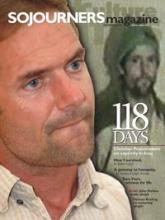Taking the test was the easy part. A simple swab of my gums (just like on CSI, I thought) and it was done. But it wasn’t my DNA that was tested. This swab was searching for antibodies my body would produce if it was fighting HIV.
The nurse who took my swab away didn’t know my name. She handed me a number and said she would call it in 20 minutes. I smiled and thanked her. After all, I was sure of the results.
And so I sat on a folding chair for the next minutes, watching the clock and pretending to read the newspaper. I wasn’t in any of the risk categories for HIV. I’m a 50-something suburban mom who doesn’t shoot drugs or have multiple sex partners. I’ve never had a blood transfusion. I was simply attending an AIDS conference where the rapid testing was available for anyone who was interested.
Like most Americans, I felt fairly sure that I was not at risk for HIV. But also like most Americans, I was only guessing about my HIV status. Unfortunately, the Centers for Disease Control (CDC) estimates that of the million Americans who are HIV-positive, a quarter don’t know it and go on to infect others.
In September, the CDC issued a notice urging regular HIV testing of all Americans between the ages of 13 and 64 as part of any routine medical exam. With drugs now available to treat HIV and AIDS, finding out you are HIV-positive is not a death sentence. But not knowing in time could be.
SO WHY WOULD I get tested if I wasn’t at risk? First, I did it because I wanted to be able to tell others how simple and confidential the new tests really are. No blood work or days waiting for results. I can say with confidence that it is painless in every way.
Read the Full Article
